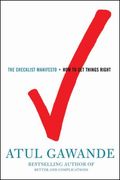No Jerks Allowed!
Many of you have seen articles about this general theme recently – in part a function of "The No A**hole Rule" published last year by Dr. Robert Sutton of Stanford…
Many of you have seen articles about this general theme recently – in part a function of "The No A**hole Rule" published last year by Dr. Robert Sutton of Stanford…
Will Rogers was fond of saying, “Buy low, sell high … and if it doesn’t go up, don’t buy it!”
That’s a whimsical sentiment, but I wonder what’s in the air when I read about the alleged fraud by Goldman Sachs described in the civil complaint filed by the SEC, referenced in the recent article here. I wouldn’t jump to conclusions too quickly. In too many ways, this episode is reminiscent of earlier 1980s battles with Michael Milken. Notwithstanding Milken’s misdeeds, my vivid memory is that there were accredited investors and savvy buyers on both sides of those transactions perfectly capable of making independent decisions. Some of them were wrong and they lost money, but in virtually every case, they were well-equipped to make sound decisions … if they did their homework.
These challenges typically arise when people lose money … and there’s no question a lot has been lost. But, to assume that people who lose on one side of a transaction, are incapable of making prudent independent decisions and were sold a bill of goods , is the flawed argument that often pervade these matters. (more…)

In our discussion of this subject, we’ve ranged from the baseline of personal accountability to a broader organizational culture, to the battle-tested power of after action reviews.
So, if the power of an accountable organization is so obvious, why aren’t we all doing it?
In “The Oz Principle,” a book by Craig Hickman (recently reissued in a revised and updated edition 10 years after its original publication), the overgrown roots of a victimization mentality is chronicled as one of the most corrosive forces in American business.
[pullquote]The man who complains about the way the ball bounces is likely to be the one who dropped it.~ Lou Holtz[/pullquote]
Mr. Hickman pulls no punches in deriding the plight of victimization that he believes has a stranglehold on American industry.
How many of these lines have you heard during your business career?
* “That’s the way we’ve always done it.”
* “That’s not my department.”
* “Someone should have told me not to do that.”
* “Why didn’t you ask me?”
* “Nobody’s followed up on this. It can’t be that important.”
[pullquote]Victimization is a corrosive force in American business[/pullquote]
It’s fodder for a Saturday Night Live skit, isn’t it? (more…)

Some of you will remember an earlier post in the GTD context about the value of checklists. Now comes the book, The Checklist Manifesto, inspired by issues found in operating rooms but expanded to the many areas where simple checklists are invaluable.
Checklists couldn’t be simpler. (more…)
Seth Godin recently wrote about two lemonade stands and how simple things in the approach made such a big difference. My colleague, Jonathan Fields, also commented on this post, expanding…